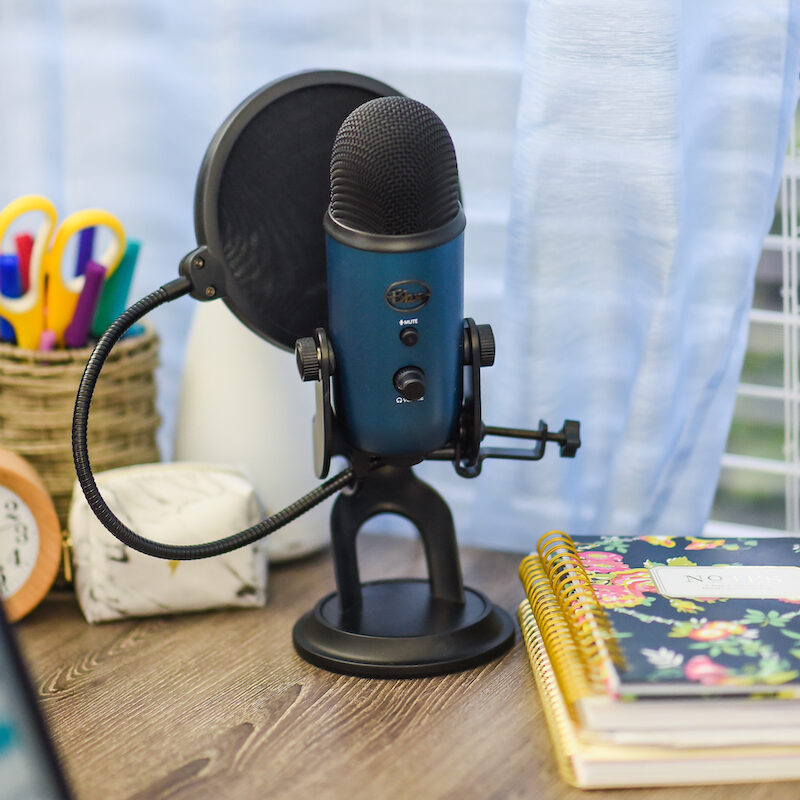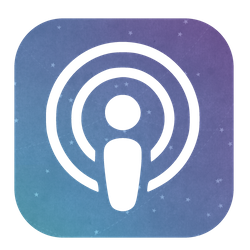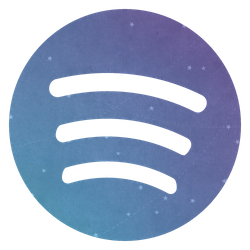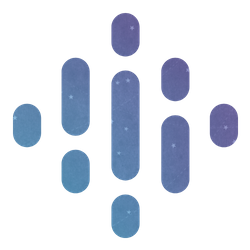episode 20
Burnout as a Web Designer & Developer
Episode 20: Burnout as a Web Designer & Developer
Show Notes:
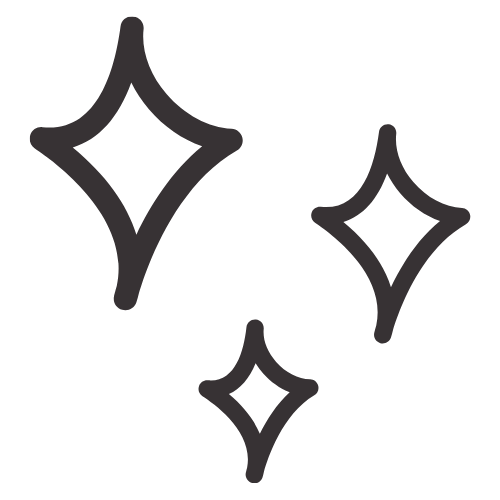




Episode Transcript:
Karyn Paige, Sam Munoz
Karyn Paige 00:00
Most of us started our businesses because we wanted to have the freedom, right. And so sometimes it’s almost like a conscious thing that like freedom doesn’t equal boundaries. And so you’re like, yeah, I’ll just do work whenever I want. And I’ll do whatever I want. And then all of a sudden, you turn around and you’re like, and you’re like, Oh, I’m working 24 seven, like, it’s, it’s beyond a nine to five, which most traditional work shifts are right? It’s like you’re working seven to seven, or like 12 hour days, and all of these things. And so it’s like this idea of maybe not having boundaries put in place or like structures and things like that is like also opening up the opportunities for burnout to come.
Sam Munoz 00:42
Welcome to making website magic where we empower women to step boldly into their web design, businesses follow their intuition and claim the success they’re worthy of. I’m Sam Munoz.
Karyn Paige 00:52
And I’m Karen page, where the tech wizards behind Sam Munoz consulting on the making website, Magic School of Business, were two women here to talk about what it actually takes to run a web design business that’s aligned with your vision.
Sam Munoz 01:05
Spoiler alert, it probably isn’t what you think it is ready to hear about everything from refining your business vision, networking with intention and creating a magical client experience. Let’s do it. Hello there, Karen. Hey, Sam, how’s it going? It’s going well, I’m eager to have the discussion that we’re having today, because it feels really timely. And it also is something that is still a struggle of mine. I don’t know about you as well. This is definitely coming from a place of like, we’re in it too. And here are things that are working for us. The topic being burnout as a web designer, and developer. And I’m just I’m actually really, really looking forward to just having the discussion talking about something that I know we’re not unique in experiencing. And so I’m ready to dig in.
Karyn Paige 01:57
Yeah, I’m also really excited to talk about this because I love subjects around like self care, sustainable practices and habits, and learning a lot of really unhelpful and harmful habits that we may have picked up from corporate america and traditional jobs. So I’m really want to dig into this conversation today.
Sam Munoz 02:17
Yes, but before we do, as always, let’s read a review of the podcast, you want to go ahead and read this one.
Karyn Paige 02:23
Yeah. So you know, we love our podcast reviews. And this one says, Sam and Karen have so much knowledge and are able to share it in a fun, easy to understand way, highly recommend this podcast for any woman working in a one to one service or consulting business. Yay. Thank you so much for that review. And however, you’re listening to this podcast, and we would invite you to leave a review. Also, we want to know what you think and what you’re getting from our show.
Sam Munoz 02:52
Yes, absolutely. And I really liked that review. Because burnout is not something that is special for web designers and developers. However, I know that this conversation is going to be very, very tailored around what we do, because I think we experienced a specific type of burnout and specific sections of our business in our life. But before we even start talking about that, let’s talk about what burnout means. I remember listening on NPR A few years ago, and they said burnout is now an official medical condition. And this is from stress.org. So not entirely sure how accurate the date on this is. But may 2019, is when burnout became an official medical condition. And although it was defined and noticed and recognized back in 1974, by psychologist Herbert freudenberger. But this is the idea that you’re exhausted. It’s work related stress, potentially physical emotional exhaustion, you feel lots of different things which we can and should talk about. But I think that the the main importance here and kind of why we wanted to even mention what burnout is and establish it as like, it’s an actual medical condition. And this is real is just to say that like the way that you’re feeling is valid.
Karyn Paige 04:06
It’s real, and you’re not alone in feeling it like lots of us have felt it or feeling it. And even though the condition wasn’t really like confirmed until 2019, people have been feeling it for years and years and years. But here’s the thing, in honor of again, like sustainable practices, and being committed to our businesses and really wanting to make it work, it’s like burnout is something that we have to manage in order to keep going right for the long haul. Because if you’re feeling burned out, literally, it’s not really a sustainable way to run a business. And it’s also not fun, it doesn’t feel good, all of those things. So having this conversation is for me is really about like things that we can do maybe to prevent burnout.
Sam Munoz 04:53
I’d really like to talk about how to help someone like self identify in terms of like whether or not they’re experiencing that and we have this really great article that we’ve pulled up from the Mayo Clinic to a link in the show notes of this episode. But some of the symptoms and like questions that you can ask yourself that they’ve listed here are Have you become cynical or critical at work? Do you drag yourself to work? Or have trouble getting started? Do you like the energy to be productive? Do you find it hard to concentrate? Do you lack satisfaction from your achievements? Have your sleep habits changed? Do you have any sort of like physical things like headaches, stomach aches, physical complaints, etc? So definitely check out that article if you’re trying to uncover whether or not you’re experiencing this. But I think we wanted to really share some, like tangible stories and ways that we’ve experienced burnout on this episode. And then, like you said, Karen, kind of circle back to like, what we’re doing to mitigate those things and not stay in this space of burnout, because you might be experiencing those things. But that doesn’t mean it has to be your reality forever. Right?
Karyn Paige 05:54
Yeah. So like, specifically regarding like, the idea of like self identifying if you might be experiencing burnout, as a web designer, or developer, like there’s some really specific things to the type of work that we do, which may be worth pointing out, right? Or it will be worth pointing out? And it starts with with the work? Do you have too many clients like? Or do you feel like you’re constantly juggling a lot of clients? Or do you feel like you have like, really negative client experiences more than you, then you would like to count? Yeah, there’s some, you know, there’s always one that’s gonna pop up, you know, occasionally or whatever. But if it’s like, continually happening, almost like a pattern with negative client experiences, that might be an underlying cause to burnout. Also, like your capacity, or your bandwidth, where you’re just kind of like being pulled in a lot of directions at once. And you don’t even sometimes feel like you have time to like, catch your breath, or like reset.
Sam Munoz 06:49
That’s such a big deal is like the not resetting part, right? Like, you just like bouncing from like one client project to the next client project to the next client project, like whether or not it’s like, you just launched a website, and now you’re on to the next one, or you’re like juggling five of them at the same time. So like, you have a client meeting with one person, it’s like, okay, I didn’t even have time to process that before. I’ve got my next client meeting. And like, some of these people don’t respect me. And so like, I’m getting into like a negative energy headspace. And like, the end of the day, you’re just so freaking exhausted from like talking to these people, or like working on their project, and you’re out of capacity, like the bandwidth is done, you have nothing left to spare. This is all speaking from personal experience. By the way, that’s why I’m so passionate about it, because it’s like, oh, gosh, it’s exhausting. The quantity
Karyn Paige 07:31
of work, like literally the quantity of hours, or the quantity of projects, or the quantity of clients is so much that like maybe you didn’t even have time to eat, you didn’t eat lunch, or you never eat lunch, because you’re just pushing, pushing, pushing from one call to the next or like one point to the next, like you said, right. So that’s ways that you might be feeling burnout.
Sam Munoz 07:50
And also like what I think is really important about this whole idea of like too much work too many clients, all that stuff. And maybe this comes in when we’re talking about mitigating burnout, but like, you wouldn’t have to take on 20 clients, if you charged enough for each individual clients that you could take on just a couple. So like, that’s something to kind of keep in the back of your mind is like we kind of created the problem, right? When we took on so many clients, when we said yes to so many people, when we didn’t charge enough to meet our financial goals with just one or two, that we felt like we had to say yes. And we had to expand our capacity beyond what was actually available to us. So that’s something to keep in mind with. Honestly, all of these things that we’re talking about is like a lot of this stuff is like self imposed, that we could avoid and mitigate with better boundaries, or whatever the case may be.
Karyn Paige 08:36
Right? Yeah. So there’s that piece too. And then in the idea of like, self imposed, just throwing the seed out there, and we’ll put a pin in it and come back to it, there’s, there’s lots of ways to switch those habits and switch those behaviors so that you are mitigating burnout, and you are creating more space for like self care for eating lunch for sleeping eight hours in a night, you know, like, but sometimes when you’re just like going, going going or not even like taking the time to like really construct and craft your work environment and what that looks like, then it’s just like opening yourself up for the burnout to happen. And so it’s something about boundaries, right? So again, it’s that idea of like most of us started our businesses because we wanted to have the freedom, right. And so sometimes it’s almost like a conscious thing that like freedom doesn’t equal boundaries. And so you’re like, yeah, I’ll just do work whenever I want. And I’ll do whatever I want. And then all of a sudden, you turn around and you’re like, and you’re like, Oh, I’m working 24 seven, like it’s, it’s beyond a nine to five, which most traditional work shifts are right? It’s like you’re working seven to seven or like 12 hour days and all of these things. And so it’s like this idea of maybe not having boundaries put in place or like structures and things like that is like also like opening up the opportunities for burnout to come.
Sam Munoz 09:54
Yeah, I was just watching this woman on YouTube. Actually, she was talking about how it’s stead of working like nine to five or like having specific hours, she was just finding herself working like in 30 minute chunks like all throughout the day. And like, then what it feels like is you worked all day like, yeah, if we added up the hours, like maybe it’s still added up to eight, but like you’re exhausted at the end of the day, because you have literally been like working and then moving to something else. And like, you know, and obviously, like based on your life circumstances, that might be how you have to operate. And I say that coming from the place of like a single mom, like knowing that I had to fit work into like specific little time blocks, but there’s still ways to like craft those boundaries. So it’s like, now work is over, and I get to relax and like recharge, nothing feels worse than not wanting to come do the job that you love. Because you have worked so much that you feel like you physically or mentally cannot show up and do that. And that’s what happens when we don’t create any sort of boundaries or structure or like we do accept too many clients and like all these things happen. Like there is no physical way for you to sustain that.
Karyn Paige 11:00
Yeah, like trust and believe your body will let you know, like your body will. It’ll tell you when you’ve been working too much like whether you like it or not, sometimes it might show up in ways have like we talked about like headaches or tummy aches from the anxiety and things like that. Or I remember being in jobs outside of web design and development where like I kept throwing my back out. And I was like, What is going on? Like, should I stop wearing high heels? Like what is this? And it was like, No, you’re taking on too much stuff. That’s why like, you’re not resting, you’re not doing all these things, you’re not practicing any sort of self care. And so all of a sudden, my body was just like, Hey, we’re gonna force you to lay down. And like that’s that or like, you know, if you get colds and like all those kinds of things, where it’s like, so much time is spent on the work and the burnout, that there’s not enough time spent in the room, the rest and the care and the recharging and the nourishment through like eating lunch every day, like, you know, getting the sleep, drink water, all that stuff.
Sam Munoz 12:00
Oh, yeah. I think if anyone listening is anything like me, I tend to be the type of person that I enjoy doing things. I’m like a doer, right? If I’m like sitting down for too long, I’m like, What could I be doing? Like, I could be reading a book, I could be doing this, I could be doing this. And then when it comes to work, like I also, you know, tend to be on like the workaholic spectrum. And so those things coupled together with a lack of boundaries with taking on too many clients with with the stretching capacity, it is a formula for disaster, when not mitigated and not you know, really, honestly, it’s like you have to like honor and respect that burnout is a thing. It’s like, you can’t just pretend it doesn’t exist. Because if you do, you’re gonna like variance it really quickly, if that makes sense. It’s like, let’s acknowledge the elephant in the room. let’s acknowledge that like this could happen to you by taking precautions and just like, it’s self love, right?
Karyn Paige 12:48
There’s one thing he said that made me think of this other thing, like being a doer, right? Like, let’s not skip over the fact we talked about this earlier, like self imposed lack of boundaries or self imposed, taking on too much work, right? We can also say that, yes, some people might be naturally inclined to like, take on a lot. And also, we live in a society that really rewards hyper productivity really rewards people for working 70 hour work weeks rewards people for capitalism. Yeah, first thing, you know, I only get like five hours of sleep. And I wake up before and I do my work. And I work till 10 o’clock at night. And like, we reward verifying the hustle. Yes, yes. Right. So whether we might be aware of it or not, like sometimes we are taking on the cultural norms, the habits and all of these things. And so that external influence can often form like how we’re showing up for ourselves, right? Again, like the idea of us starting our own businesses, but still taking in all of those habits from maybe corporate culture or the shift work, culture, just all of that, right. And so there’s a reason for that, like, if you burn out in the context of office job or a shift work job, you can just quit that job, and they’ll replace you like, they don’t care. Like that’s how that works. But this is our business, like we can’t replace ourselves in our own business. You know what I mean? That’s not how that works. So that is why the idea of like sustainability, and mitigating burnout and doing what we can to support ourselves is so important, because if we burn out, there’s no one to replace us in this business.
Sam Munoz 14:27
Right? It when we burn out and we need to take like a month off. That’s an issue. I don’t want to skip over this other part, though, in terms of like other ways that you as a web designer developer might be experiencing burnout. And that is creativity, right? You might be experiencing a lack of like creative thoughts, creative ideas. So like this could come up when you’re like making a design for a client and you’re like, you just can’t think of, you know, a different way to display a button or like you’re working on a piece of code and you’re like, I can’t think of any different solutions for this and like this. This definitely happened to me, that is one huge way that I know that I’m like burnt out and I need a break is like when I can’t think of any creative ideas at all. I mean, like, not only is that bad for our mental health, it’s not good for our businesses either. Because it’s not helping us perform the best that we can for our clients perform the best that we can for our business. And so it’s like, double bad. I cannot wait until we talk about like how we’re mitigating burnout. Because I love this idea of like, framing you mitigating burnout as a plus to your clients as a benefit to them, I will be more creative for you, I will work harder for you, I will have better boundaries for you, like I will show up as a better service provider because I am taking care of like, Oh my gosh, if you can’t do it for you do it for your clients and do it for your business.
Karyn Paige 15:45
Right. And so like the idea of like creative burnout is real, right. And also, again, these are ways that they can be like mitigated, manage and stuff like that. So when we get into like, the a different area of the conversation, where the things that are working for us, like that is a thing, right? But the other piece of like, if you’re experiencing creative burnout, sometimes we don’t realize that that’s what’s happening. We’re just like, I’m not good enough. I’m not creative enough. I don’t have the good ideas, my design skills are lacking. And it’s like, No, no, that might not be true, it might be but it’s probably less of you not being a creative person and not having the ideas and more about not being able to have the ideas come and flow because the other pieces are preventing you right, like the too many clients not enough time, etc, etc.
Sam Munoz 16:34
I know that with the pandemic, especially like I was really, really experiencing creative burnout, because I like was not leaving the house for I mean, this is something that a lot of us can relate to. Right? I remember specifically It was like back in June of last year, I hadn’t like really left in like months, like maybe every now and then you know, I wasn’t going to the store didn’t drive my car for like two and a half months or something like that. And I like had no ideas, there was no creative input. Because I was like sitting at my computer like I can’t like I tried to build this homepage mock up like 15 different ways. And I was like, I can’t think of a single thing. And I was like, so exhausted with all the life stuff, right? All like the managing my daughter and like not being able to leave the home and like all of these other things. And then the work on top of that, like there were no boundaries. There were no boundaries, there was no like, the capacity was already way over, right? Because we had like accepted work. And then the pandemic happened. Like That was unexpected, but also like, there was creative burnout on top of that. So like, there’s so many ways you could be experiencing this, I think it’s important to like recognize it.
Karyn Paige 17:38
Yeah. And again, okay, again, another thing, right, where it’s like, it’s not just as so many things have changed as a result of the pandemic. So it’s like, even if everything else in your life is like still hanging in there, and you’re able to like manage it all. There’s this extra layer of you know, that kind of like dull, aching pain of stress from just being in a pandemic and having the things right, when you said not being able to go, it reminded me of, you know, sale, let’s talk about like the coffee shop analogy. And like web design for coffee shops, you had told me once that you like to work from coffee shops, and you would get inspiration, like there was one coffee shop where you were there and they had like a really cool like Walmart or something like that. And it gives you this like creative boost. And you’re able to like implement it in a design, right? So that is part of your creative process. And then because of the pandemic, you weren’t able to tap into that part of your process. And so it led to this kind of like creative burnout sensation. And that’s beyond your control. Right. So again, it’s like, I don’t want it to seem like this conversation about burnout is like the calls are coming from inside of the house, like where the problem, but oftentimes, it’s just the awareness of external situations that might be influencing the burnout, and like just saying, hey, it’s more than just me, there’s all this other stuff happening too.
Sam Munoz 18:55
I do think that’s why we keep saying like mitigate burnout and not reduce it, remove it. Like, I think we’re using that word intentionally. Because to me, the way that I use the word mitigate is like, not necessarily like completely avoid, but like, make it less likely to happen. Because like, I do think that it’s like a natural human experience to get burnt out to get overwhelmed to get exhausted, like that’s a part of our makeup as humans. And so I think that there are ways that we can make it easier on ourselves basically, like, why don’t we stack the deck in our favor versus against us? And yes, I think that another aspect of this is working on projects that either you’re not passionate about or are in some way misaligned. And I think that that’s another way that burnout comes out. It also comes back to like, you know, having crappy client experiences and like all these other things, or you know, doing work that you don’t really care about, you know, it’s like I’m building a website for I don’t I can’t even really think of someone that I wouldn’t want to build a website for in particular, but like I’m building this feature that I like don’t care about, but all of a sudden now I have to spend like 200 hours on this thing because it’s misaligned and I don’t really know what I’m doing and all these other thing. So I think that that’s like another layer to burn out that is specific to our type of industry because sometimes we might say yes to something, you know, from reasons that we’ve talked about in the past on the podcast, and then it ends up burning us out. And then we like do not the best work.
Karyn Paige 20:15
It might not even be the case that like, you can’t do the work, like you’re incapable of like performing the task. But it is like pulling teeth to get you to do it. It’s not fun, you don’t enjoy it, it doesn’t light you up, or like, it’s literally the thing that you don’t want to be doing anymore. But you’re just kind of doing it. Like for example, for me, I don’t like creating logos. And I don’t like coming up with color palettes, right. Like, in theory, I love playing around with swatches, right? But the back and forth of like, Can you make this shade of yellow, a little bit more saturated? Can you make it a little bit more orange like that back and forth, don’t enjoy it. And yet for years, I found myself still offering logos to people, right? And it was just out of alignment with what I wanted to be doing.
Sam Munoz 21:02
That’s making me think of that idea of the episode that we did about like the things that we think we should be offering as a web designers and developers, and how that can actually lead to burnout. Because we like we think we need to be offering branding, or we think we need to be working 24 seven and have this hustle mentality. And what ends up happening is that it works against us and it ends up, we end up being burned out, we end up being exhausted and overwhelmed.
Karyn Paige 21:27
And it’s like there there are always going to be things in business where it’s like, I don’t really want to be doing this right now. Sure, yeah. taski admin tasks, but it needs to get done. But then there’s also like the big red flag neon sign like glaring things like this work that I’m doing right now is like totally out of alignment with me and who I am. And that stuff does indeed lead to burnout as well.
Sam Munoz 21:49
Yes. And I think I think we should talk about kind of what we’re doing behind the scenes to help us not get overwhelmed, exhausted, and all these things. And I think you said it before it starting with those sustainable habits like understanding that I like to use this analogy and think of things like this. I remember I was camping for the watching, I had my fire going right. And I was watching these guys over at another campsite and they had a fire. And they like, finally got it going, which like, I mean, I’m not shading them, but like my fire was burning, let’s just put it that way. So they finally get their fire going. And they like keep putting gas on it. So their fire would get like massive and huge, right? And then it would like trickle out and go away didn’t become little embers. And then they’d put some more gasoline and be like huge, and then it would like go away in a minute. And I’m over there with my fire. It’s got wood, just kind of like kindling and it’s burning, and it’s just sustainable. And it really makes me think about this idea of like sustainability. And then like over exerting yourself and burning out like could it could that be a better analogy, like their fire was burning out? Because they were just like gasoline,
22:53
like let’s do it. Like let’s just to supercharge my business and like work for 50,000 hours. And then oh my gosh, I’m
Sam Munoz 23:01
so tired. I can’t work for a whole year like I needed to take a sabbatical.
Karyn Paige 23:04
Do you know what I mean? Yeah, literally, it’s like short, fiery, big bursts, or slow, sustainable low embers that are just gonna go and go and go. Right. That’s literally what I hear from that story. Right for like marathons versus Sprint’s, you know, or those like 90 day extreme weight loss programs. And then by day 100, like, you’re back to your old habits, because you can’t sustain 90 days of extreme and you are burned out. You can do it for 90 days, but you can’t do it for 365. Right. So the awareness, the awareness, first of like, creating sustainable habits, right, that is the first piece and that’s what’s been working for us to mitigate. burnout is like being aware that we’re making this choice to do sustainable actions, even if it means like it’s a little bit slower. The results come a little bit later, they’re still going to come but we’re not going to Peter out or burnout in the process of getting there.
Sam Munoz 24:10
What you just said like the way that you said it has me thinking that what we need to do is we need to reframe all of this instead of like, I don’t want to burn out. I want to sustain
Karyn Paige 24:21
it’s not about burning out. It’s about staying fueled. It’s about shining on Yes. Being able to kids, Yes, right. It’s about maintaining,
Sam Munoz 24:30
and it’s a positive. Like I read this really, really, really great book that I kind of want to go back and read again. It was called rest why you get more done. When you work less by Alex Sue junk campaign. We will add this to the show notes. Ladies, this book transformed the way that I see rest. So that’s what I meant by reframing right is like let’s stop thinking about it. Like I don’t want to get burnt out and I get to rest because when you rest you actually show up better. You show up better. Not only because you’re not burnt out, but you show up because you have more creativity, you have more ideas like you’ve given yourself time to like, take a break so that you can fully recharge. It’s like when you’re running on like 100% battery versus, like 20% battery, like when you’re playing Minecraft, and you’ve got 10 hearts instead of one heart. That’s like the difference here.
Karyn Paige 25:20
Okay, so that makes me think of my favorite analogy, which is too many apps running on your machine or your device at one time. Like, if you’re running at 20% battery on your phone, you got to start closing down your apps, you got to start you got to turn down your brightness, you might have to go into airplane mode, like you have to remove unnecessary things that are pulling your energy, right, in order to make that 20%. last longer, right, or you need to just straight up, sit down, sit your phone down, plug it in, until it gets to 100 and then come back. You know what I mean? So it’s like the awareness creating the habits and doing all these things. Right? When you said the book rest, it reminds me of this Instagram account that I love to fall called the nap ministry. It’s just this woman who is constantly posting like thoughts about, we can unlearn that our value as humans is not attached to our productivity, it is not attached to our output, right? So that’s the other piece of the reframing too, is like, you’re not worth less as a person, if you’re taking time out to rest, and you’re not worth less as a person, if you stop associating your value with how much you’re able to do or how much you’re able to create or like how much output you have. Right? So that ties back into the you don’t need to be glorified for taking on 10 clients in a month. If you have no energy left over, right, like it’s okay. You’re still a value inherently valuable, beautiful human being right. So that’s the other reframing piece.
Sam Munoz 26:48
I love that. Yes, that is so powerful. I would love for us to share some of like the tactical things that we’ve been doing behind the scenes at SMC and I do want to like preface this by saying this is not an exact science, we’re still trying to figure it out. In fact, like this last project that we launched, I would say was 90%, the way that we wanted to do it in terms of like process and mitigating burnout. But then towards the end, it was like, Whoa, we had like so many things to do stayed up way too late, many, many nights working. And after we finished that project, I was like, ooh, looks like we have some systems we can update like looks like there’s more room to grow here in terms of like sustainability and making sure that we have processes in place to really honor what we need. But some things that we have been doing that are working are taking frequent breaks. So whether that be like during the day, instead of like working the entire day, like taking breaks for lunch, taking breaks for you know, eating breakfast, having, you know, just less tasks to do. We’ve also been doing a lot of time blocking, which I want to do an entire episode on that on the idea of time blocking for web designers and developers in a later podcast. But that’s been helping a lot, definitely making sure that the projects that we accept are actually within capacity and in alignment. So not accepting too many clients and too many projects. And really, honestly, that comes down to like having higher prices, right? allowing yourself to charge more so that you don’t have to take on so many projects. And then I think one of the biggest things that we’ve been doing that I really, really want to talk about is something called the post launch restoration. So instead of like launching a big project, and then being like, okay, on to the next, which is what we have been doing in the past, and like I had always done myself when it was just me in this business. Now we actually take two days off, like fully off of work sometime after our project completes so that we can reach, recharge, refuel, and again, like thinking about this idea of why you get more done when you work less like showing up better for our clients. And that’s how I frame it to them. I’m like we’re taking time off so that we can you know, be a better service to you. So I’m loving this post launch restoration. What do you think about it, Karen?
Karyn Paige 28:53
I love the post launch restoration specifically because it’s so intentional, right? Like it’s this tactical thing of we put it on the calendar, we blacked out the dates on the calendar. So we already know like no meetings, no work, nothing, right. So you can see it, you visualize it, you can look forward to it. And then in that space, it’s like so intentional about we’re gonna be offline, like we’re not cracking open. Like maybe we’ll crack open the laptop to do like one thing, but we’re gonna this otherwise we’re gonna set our autoresponders so like people know, like managing those boundaries, managing those expectations, all of that stuff. So it’s like, again, sometimes you literally need to know the how to write it’s not just enough to say, Oh, yeah, take a break. It’s like but how? Here’s a very specific way of how we do it, right. Like, again, like the taking frequent breaks in a day for me. I had to hear that from my physical therapist, like I know we’re supposed to take breaks when we work, you know, a shift workers, you’re required by law to take a 15 minute break, you know, depending on on the law of your state, right when I was in California, it was like for every four hours you work you have to take 50 In minutes and just stop and go do something right. But like my physical therapist was like, if you’re still having back problems and stuff like that, you shouldn’t be sitting down for more than 45 minutes at a time. And I’m like, I’m a web designer and developer. Sometimes I’m sitting down for hours before I realize it, because I just love being in the work, right? She’s like, No, you if you have to set timers for yourself, again, like the structure, the tactics, the reminders, like, there’s all kinds of like pomodoro apps that you can get where it’s like, a certain amount of time on and then you take a break, and blah, blah, blah. So doing those like really tactical things. But then also, the benefit of that is giving your brain a break, giving your brain the rest to allow the creativity to come in when it needs to the other piece that I think about too, I think that’s something that’s really worked for us. And that I noticed that a lot of web designers don’t do is just like, even the simple project process and the timeline of a project, like whenever somebody tells me that they can build an entire website in four weeks. My number one question is like, what about the content phase, because I guarantee your clients are doing giving you the content in four weeks. So now you’ve placed this like unnecessary like burnout on yourself to produce and deliver in such a short turnaround time. So like, sometimes, it’s really just a matter of like giving yourself the time it’s based like building it in to your work process.
Sam Munoz 31:25
Karen, that is such a good idea. Or like that’s a such a an important thing to mention. Yeah, cuz like, let’s say you get the content three weeks in, now you have one week to deliver on this entire project. And you’re going to want to stick to that deadline, because you’re like, this is what I told my client when it would be done. And now all of a sudden, you’re totally burnt out, because you didn’t give yourself any time or like those times when
Karyn Paige 31:45
you when you’ve you don’t feel the creativity is flowing. And it’s like because you gave yourself 48 hours to be creative, right? Like you can give yourself more time you give yourself two weeks to be creative. You can go drive to the beach, where there’s no people, and just sit by the water and let the creativity flow into you go for a hike, you can spend all that time watching virtual tours of modern art museums if you want or like fashion shows, like wherever the creativity comes from. If you can’t go into a coffee shop, you can look up pictures of coffee shops on Pinterest and get like building creativity but allowing yourself the grace and the space to do it so that you don’t feel rushed. because trust me, like the hardest thing to do is to be creative. While the clock is ticking, you know.
Sam Munoz 32:33
time crunch. Yeah. Something that I want to mention is that I think a lot of this stuff comes with like experience, right? I think we had this happen like behind the scenes. Do you remember this? Karen, when like we started the sprint strategy. So we had this thing with SMC where we do like two week sprints. And we did that as a part of this like mitigating burnout. And also just like making sure that we know what our projects are and stuff like that. And we did the first sprint. And we realized that we like way over committed ourselves for like what we could do in in two weeks. And so it would it took like kind of getting over capacity, and getting a little bit outside of those boundaries and over, over and outside what we could do to say, Oh, wait a minute, we need to mitigate this and like, reassess. And so I think that like if you’ve experienced burnout, you probably have enough past experiences to like, go back through and parse through and say, how could I have done this better? But I think it really takes some self evaluation and looking back and saying, like, what can I set up ahead of time so that this doesn’t happen? Again?
Karyn Paige 33:34
Yes. And like you said, sometimes that does come with experience, like sometimes you do have to find yourself in a situation where you’re pushing right to the edge in order to understand what like what your edge is, right? And so then it’s like, Okay, well, I know what it feels like to have 10 clients in a month. And that wasn’t sustainable for me. So moving forward, I’d like to maybe whittle it down to like eight, or six, or five, or even two, you know, what I really like, it’s also a little piece of like, we are very strong, and we are very capable of doing things. But it doesn’t mean we have to do those just because you can lift 100 pounds and hold it for 30 seconds doesn’t mean you should or you have to like it’s okay not to
Sam Munoz 34:20
just because you survived that 10 client situation doesn’t mean that you should put yourself in that situation. Again, if you were exhausted and burnt out during that I think that’s really important. So let’s leave you all with this thought and like something to just kind of observe and notice, like where are areas in your business where you are burning out? Where are you experiencing just like that dread. That feeling of like, I am so overwhelmed. I don’t even want to be doing this. And are there areas of your business where you can create better habits, more sustainable systems so that you can mitigate that burnout so you don’t have to go through all of that right. So that’s that’s where we would really like to leave you and really this idea that like You’re not alone if you’re experiencing burnout, and we are right there with you, and we’re cheering you on, and if you want someone to talk to you about it, our inboxes are open on Instagram and we would love to, you know, have that discussion with you openly and honestly. So that’s where we’ll leave you today. Yeah, thanks. This was another great episode.
A Season of New Beginnings
Today Sam & Karyn make the bittersweet announcement to end the podcast as they step into a new season of life and business. They share what is to come for them, how you can stay connected to the Making Website Community and encourage you to be open to new opportunities, too.
Season 02 in Review
Today Sam & Karyn look back on season 02 of the podcast, celebrating successes in the mentorship, launching our free community, the future of the podcast and Making Website Magic at large.
People-Pleasing as a Web Designer & Developer
Today Sam & Karyn discuss people-pleasing, understanding that your business has needs and how to honor them in your client relationships.


